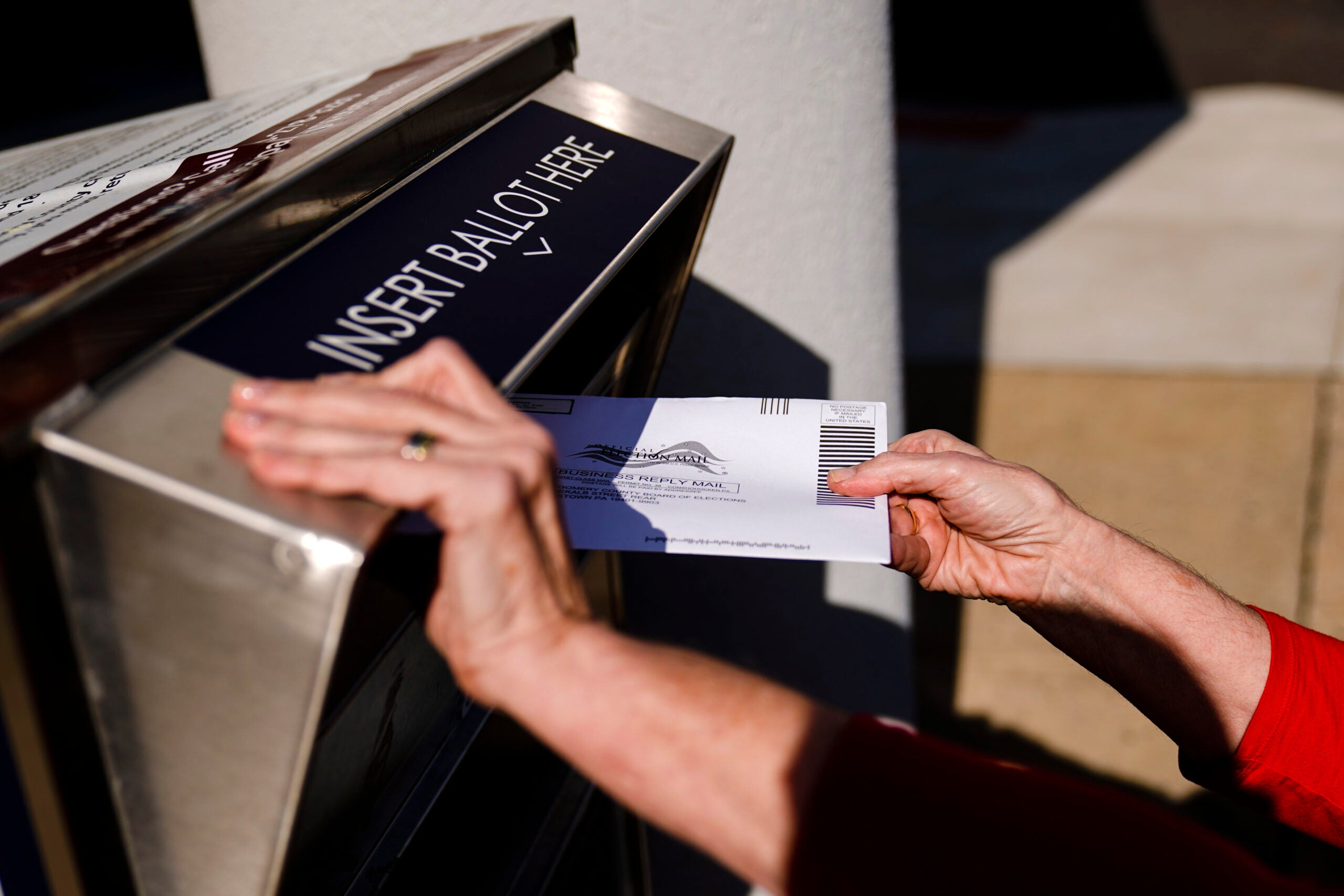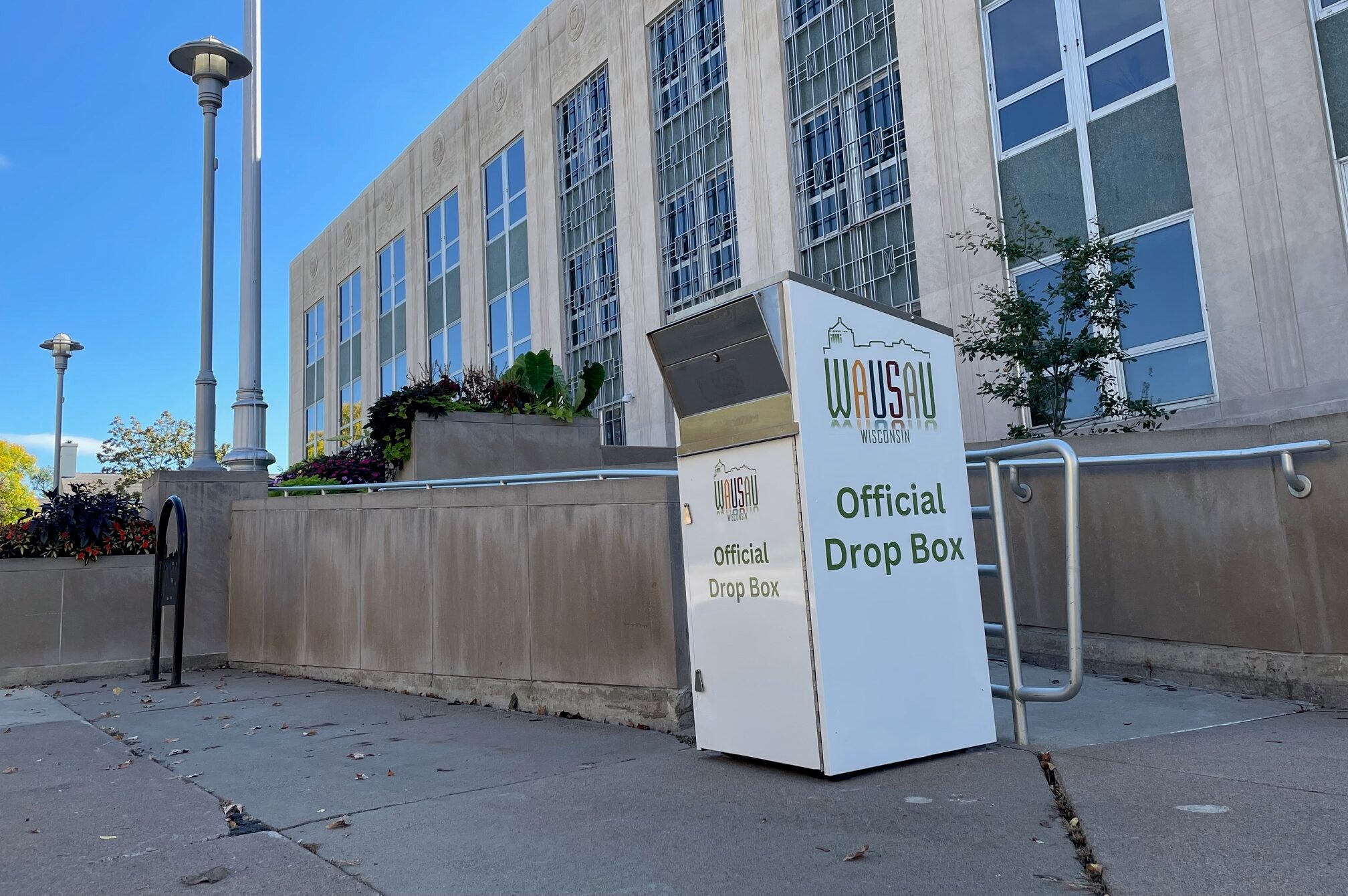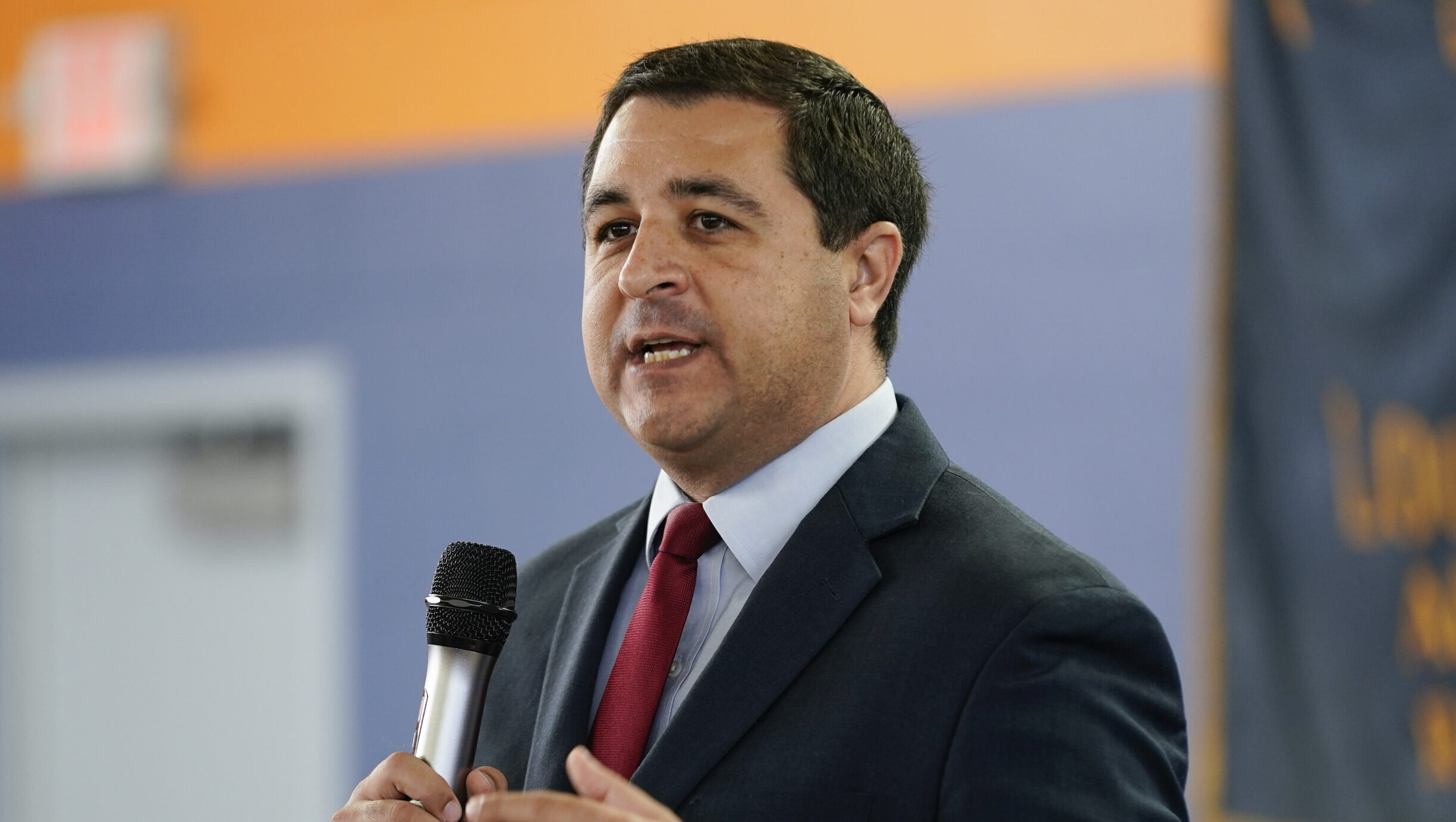A coalition of groups is calling for the Wisconsin Supreme Court to reverse a circuit court ruling that advocates say would prevent many disabled people from voting.
In January, Waukesha County Circuit Court Judge Michael Bohren issued a ruling on a lawsuit focused on drop boxes. As part of that ruling, Bohren ruled that Wisconsin voters must themselves physically return an absentee ballot. Under that ruling, it would be illegal for someone else — even a caregiver or a family member — to place a completed absentee ballot in a drop box or into the mail.
Bohren’s ruling was part of a wider lawsuit on drop boxes in a lawsuit filed by the conservative Wisconsin Institute for Law and Liberty, known as WILL.
Stay informed on the latest news
Sign up for WPR’s email newsletter.
The state Supreme Court heard arguments on the case last month, but hasn’t yet issued a ruling.
On Wednesday, a coalition of groups, including advocates for the disabled, held a rally in Madison they called “Unlock the Drop Boxes.” In addition to focusing on the use of drop boxes in elections, they said that a provision of Bohren’s ruling focused on who can handle ballots should be overturned. They argue it is critical to voting rights for the disabled and for frail, elderly people that they are able to have assistance in returning ballots.
Milwaukee resident Martha Chambers said she has been unable to use her arms or legs since she was injured in a horseback riding accident in 1995. She uses a wheelchair she controls with her mouth and is able to write using a mouth stick.
“I can fill out a ballot on my own. However, it is literally impossible for me to pick up a ballot and put it in a mailbox. So, for this new barrier that the Waukesha Circuit Court has put upon us, it is literally impossible for me to vote,” Chambers said. “Not only that, but if I do choose to vote the person who put my ballot in the mailbox would become a criminal, and this is totally ridiculous.”
According to Jenny Neugart, of the Wisconsin Board For People With Developmental Disabilities, there are more than 80,000 people in the state with physical disabilities like cerebral palsy, muscular dystrophy or spinal cord injuries that prevent them from physically putting their own absentee ballots in the mail. Neugart named a number of disabled residents who have contacted the organization to say they weren’t able to vote without physical help.
“Previously, they were able to ask friends, family, neighbors or their caregivers, people they chose and trusted, to return a ballot on their behalf. That’s not ballot harvesting, that’s just being neighborly and helping our fellow man,” Neugart said.
Neugart said the restrictions on aiding disabled voters violates the Americans with Disabilities Act and the Voting Rights Act.
During arguments on the case before the Supreme Court in April, Rick Esenberg, WILL president and general counsel, was asked by the justices whether it was a violation of the law if someone else placed an absentee into a mailbox for a voter.
Esenberg argued Wisconsin Election Commission guidance on drop boxes and absentee ballots opened the door to paid party activists and volunteers gathering ballots for mailing. Esenberg told justices the law requires voters to mail or drop off ballots directly.
“What if I take my envelope, and I seal it, and I stick the stamp on it, and I put my return address on it, and I am standing at the mailbox and I hand it to my son to go the arm’s length from where I am standing into the mailbox,” Justice Jill Karofsky asked Esenberg during the April hearing. “Has that been mailed by the elector?”
“Within the meaning of the statute, no,” Esenberg replied. “Because you’ve given the ballot to somebody else.”
“Mr. Esenberg, I know — I’m sure you can appreciate how absurd that result is,” Karofsky replied.
Esenberg answered that it isn’t absurd.
Disability Rights Wisconsin is fighting the suit. The group argues it would disproportionately disenfranchise people with disabilities and people who are elderly.
Wednesday’s press conference and rally was co-sponsored by a coalition of organizations that included Disabilities Rights Wisconsin.
Joining them were voting rights and civil rights organizations including the Dane County League of Women Voters, Souls to the Polls, the Wisconsin Board for People with Developmental Disabilities and the League of Progressive Seniors.
Wisconsin Public Radio, © Copyright 2025, Board of Regents of the University of Wisconsin System and Wisconsin Educational Communications Board.




